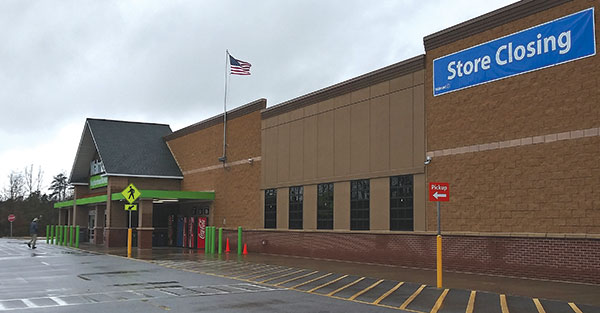Federal and state lawmakers recently called for legislation to help people in low-income neighborhoods get better access to fresh vegetables and other healthy foods.
Four so-called “food deserts” exist within Chesterfield County, according to a 2017 map from the U.S. Department of Agriculture’s Economic Research Service.
Although county officials say that food deserts exist in the county, they believe the issue has been exaggerated.
Deputy county administrator Bill Dupler said that, although Chesterfield has some rural and urban areas, much of the county is suburban, so the rural and urban designations that the USDA used to create the map don’t fit the county.
The federal agency defines a food desert as an urban place that is more than 1 mile from a large grocery store that sells fresh meats, vegetables and dairy products, or a rural area that is more than 10 miles from such a grocery.
In addition, county revitalization manager Carl Schlaudt said the USDA map doesn’t factor in smaller neighborhood markets. Dupler cited two examples of Latino markets near Jefferson Davis Highway – Nuevo Amanecer, 6515 Jefferson Davis Hwy., and Grand Amanecer, 9645 Jefferson Davis Hwy.
Schlaudt said that if any portion of a census tract is considered “low-income,” the USDA counts the entire tract area as low-income. A census tract can vary in size and represents 2,000 to 7,000 people, he said. The effect is that the entire census tract can be counted as being in a food desert even if only a portion of it is.
“There’s a whole lot more to the picture than what they’re painting,” Dupler said.
One of the food deserts on the USDA map is located southeast of 7000 Iron Bridge Road, where a Walmart Neighborhood Market store closed March 29.
That area is a food desert, Dupler said, adding that the store was open for three years but apparently didn’t do enough business to cover the store’s expenses.
“People were not doing full-scale shopping there, but were using it for quick stops,” he said, noting that the store was 6.2 miles north of a Walmart Supercenter at 12000 Iron Bridge Road.
County options?
The Chesterfield Economic Development Authority oversees a technology zone program that provides waivers, rebates or exemptions of various fees and taxes for up to five years for businesses that build or expand in five areas, including the Jefferson Davis, Meadowbrook/Meadowdale, Walthall, Hull Street Road or Midlothian Turnpike areas.
The county also offers a partial tax exemption for 15 years for renovated structures that are no more than 25 years old. The rehabilitation, renovation or replacement must increase the property’s assessed value by at least 10 percent.
Federal legislation
The Tax Cut and Jobs Act of 2017 created Opportunity Zones to increase investment in “economically distressed” communities. The program provides capital gains tax reductions for investments within designated low-income census tracts. A map provided by the U.S. Treasury Department shows Opportunity Zones in the Bensley area north of Route 288, west of Interstate 95 and in Ettrick.
Since 2000, federal law has allowed for New Market Tax Credits, which provide tax credits ranging from 5 percent of the investment in the first three years and 6 percent in the remaining four years in designated areas. Several NMTC areas are located in Chesterfield.
Recently, Virginia’s U.S. Sen. John Warner and U.S. Rep. Donald McEachin, both Democrats, co-sponsored legislation — the Healthy Food Access for All Americans Act — that would provide tax credits and grants to grocery stores, food banks and other organizations that provide healthy foods in underserved communities. Entities would undergo a certification process to qualify for financial assistance.
Under the proposal, businesses would apply for certification as special access food providers. A certified store that opens in a food desert could receive a one-time 15-percent tax credit. Businesses that have been remodeled or rehabilitated to qualify as grocery stores would receive a one-time tax credit of 10 percent.
State legislation?
During this year’s Virginia legislative session, a bill to provide funding for the construction, rehabilitation and expansion of grocery stores unanimously passed the Senate but died in the House of Delegates.
Sponsored by Sen. Bill Stanley, R-Franklin, and Sen. Rosalyn Dance, D-Petersburg, SB999 would have established the Virginia Grocery Investment Fund and provided $5 million to help approved food providers in underserved communities.


